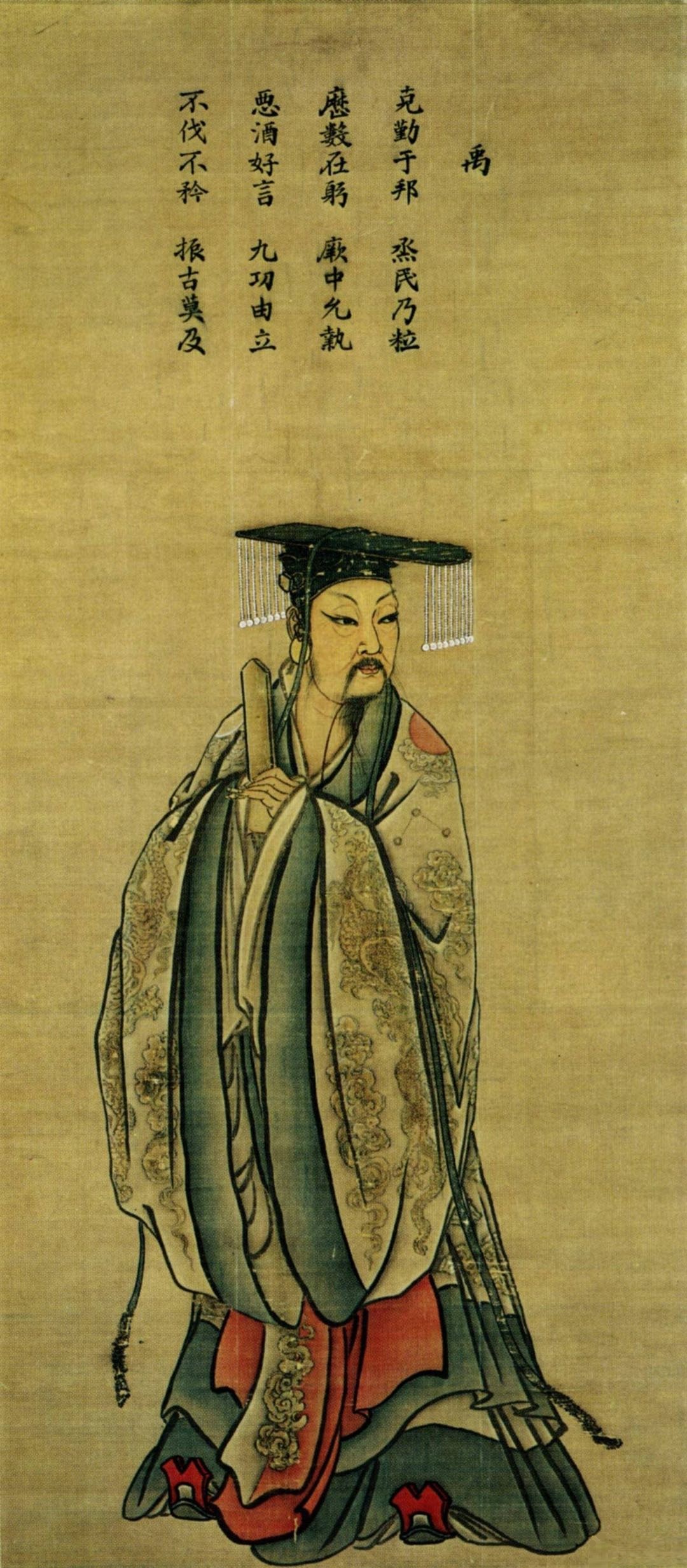Emperor Yu
Yu, also known as Wenming of the Si clan and the Xiahou lineage, is historically revered as Da Yu (Great Yu). During his time, devastating floods engulfed the land, forcing people into hardship and displacement. Emperor Yao initially tasked Yu's father, Gun, with flood control, but after nine years of unsuccessful efforts, Yu was appointed to take over.
Yu adopted a groundbreaking approach, focusing on channeling the water instead of merely blocking it. Leading the people tirelessly under harsh conditions—often eating and sleeping in the open—he famously passed by his own home three times without entering. By directing accumulated floodwaters into rivers and ultimately to the sea, Yu successfully resolved the crisis after 13 years of relentless effort.
Grateful for his monumental contribution, people honored him with the title Da Yu. Through his extensive travels during the flood control efforts, Yu gained deep insights into the geography, customs and resources of different regions. He reorganized the land into nine provinces, outlining specific types of tribute that each province was to offer to the emperor.
Yu also instituted a system dividing the territory outside the imperial capital into five concentric zones: Dianfu, Houfu, Suifu, Yaofu and Huangfu. Each zone had distinct responsibilities or provided goods based on its geographical characteristics.
In his later years, Yu intended to abdicate the throne to Bo Yi, following the tradition of virtue-based succession. However, Bo Yi deferred the position to Yu's son, Qi. Qi, a capable and wise leader, ultimately ascended to the throne with the support of the vassal states, marking the establishment of the Xia dynasty.
